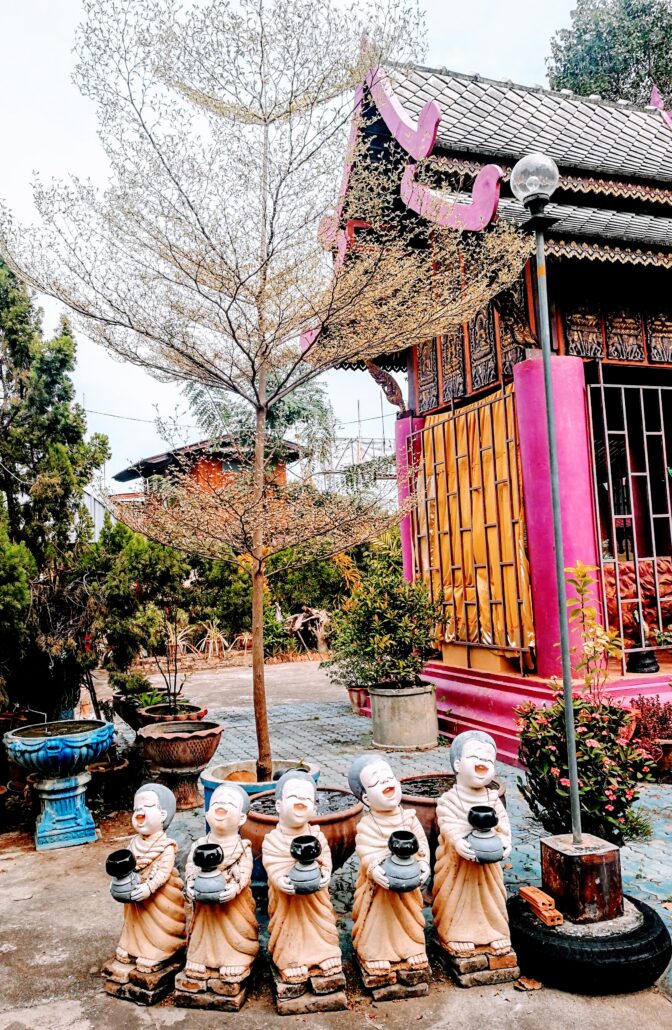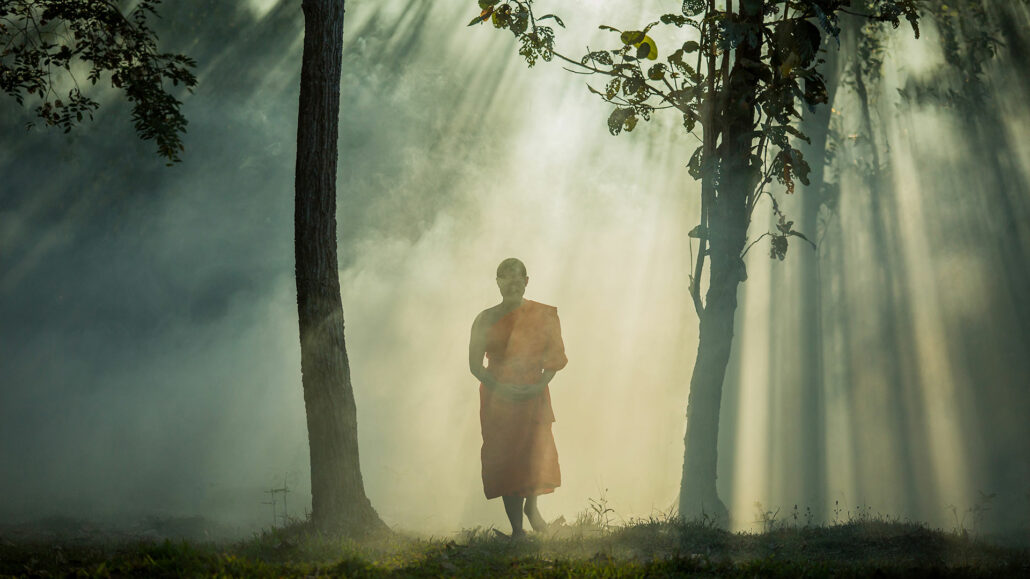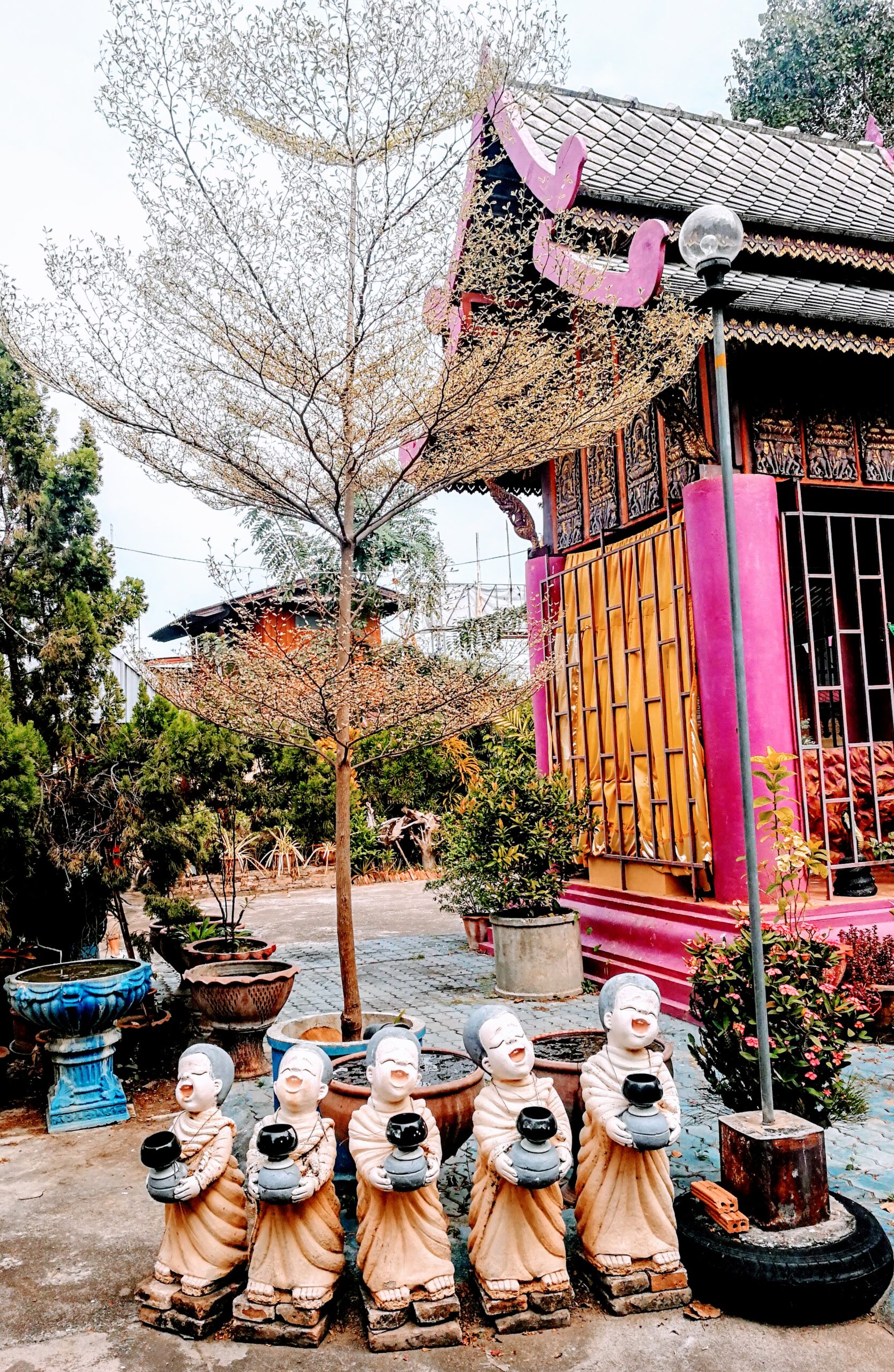
Dana, often translated as “generosity” or “giving,” is generally regarded as one of the six paramitas or perfections of Buddhism. It is a fundamental aspect of Buddhist practice and plays a pivotal role in the development of a compassionate and selfless character. Dana is not just limited to material giving or donating money, it encompasses a broader understanding of generosity that extends to the giving of one’s time, knowledge, love, and even spiritual guidance.
Let’s have a deeper dive into the concept of Dana:
- The Essence of Dana: Dana goes beyond the act of giving material possessions; it is about giving with an open heart and without attachment. True generosity arises from a selfless desire to alleviate suffering, promote well-being, and support the spiritual development of others. It is an expression of compassion, empathy, and interconnectedness.
- The Three Types of Dana: In Buddhism, Dana is categorized into three main types:
- Giving of Material Wealth: This involves giving material possessions, such as money, food, clothing, and shelter, to those in need. It is the most common form of Dana and helps address immediate needs in our community and society.
- Giving of Fearlessness: This form of Dana involves providing emotional and psychological support to others, often by offering comfort, reassurance, and a sense of safety. It can also extend to teaching and sharing knowledge to mitigate ignorance and fear.
- Giving of Dharma: This is the highest form of Dana and involves sharing spiritual teachings, wisdom, and guidance to help individuals find hope and purpose and possible liberation from suffering. It encompasses teaching and mentoring and is offered without any expectation of personal gain.
- The Motivation Behind Dana: Dana is not about seeking praise, recognition, or reward. It is motivated by genuine compassion and a desire to alleviate suffering and promote spiritual growth for our fellow human beings. The ideal is to give without any expectation of receiving something in return. In this way, Dana helps cultivate non-attachment and overcome the ego’s selfish tendencies.
- The Ripple Effect of Dana: Generosity has a ripple effect that extends beyond the immediate recipient. When one person practices Dana, it can inspire others to do the same. This creates a sense of community and interconnectedness, fostering a culture of giving and compassion.
- Dana and Spiritual Development: Dana is considered a key practice for developing an open heart and promoting kindness, compassion, and non-attachment. It also plays a significant role in accumulating positive karma, which can lead to a favourable rebirth or, ultimately, liberation from the cycle of suffering – and who wouldn’t want that ?
- Dana in Everyday Life: While acts of charity are a crucial part of a life well led, Dana can also be practiced in everyday life. Small acts of kindness, such as helping a family member, offering a listening ear to a friend in need, or sharing one’s knowledge, are all expressions of Dana.
In summary, the Dana paramita is a foundational practice in Buddhism that emphasizes the selfless giving of material goods, emotional support, and spiritual guidance. It is a means of cultivating compassion, generosity, and non-attachment while contributing to the well-being and spiritual growth of others. Dana serves as a reminder of our interconnectedness and the importance of extending a helping hand to alleviate suffering in the world.
And I will leave you with this thought – if you enjoy a drink or three how about a challenging act of Dana over the holiday season? It goes against every premise of an Aussie Summer Celebration but hey, who wants to be a lemming in a noisy crowd?!
Can you choose from December 1st to January 31st not to have one drink of alcohol and not tell anyone you are doing it? That’s right, not one drop of booze in your system for two months! Did that send a shiver down your spine? I reckon that’s a more daunting prospect than running a marathon or a push bike ride from Sydney to Melbourne, and those superstars raise millions of dollars for charities. I’m not asking you to publicly display your victory but silently give yourself and your family a wonderful physical, emotion and spiritual gift by not drinking booze.
That’s right, no booze on:
- Christmas Day.
- Boxing Day.
- New Years Eve.
- Australia Day (for those who celebrate – I don’t by the way, but freedom of choice is the greatest gift of a fair society.)
Just imagine all the money you will save, and the absence of a potential hangover is a wonderful bonus, plus your senses will explode in delight after a few weeks of your nerve endings being free of alcohol, and you will be truly congruent and present with your loved ones.
Let’s face it, in Australia’s boozy party culture and unhealthy relationship with alcohol, choosing not to drink over the holiday season is a huge victory and a massive milestone and will set you apart from the followers.
If you can manage not to drink booze over Christmas and New Year you are a legend and a disruptor and you will become wealthy in mind, body, spirit, and hip pocket. You will decide to embrace freedom of choice and freedom of choice is the best present you can give yourself and your loved ones – it is the gift that keeps giving, and all the money you have saved you can pay forward to your favourite charity on February 1st.
NB – if you decide to take up this Dana challenge, and you have 2 or 3 drinks of alcohol a night check in with your doctor before you stop cold turkey. Alcohol is legal but it is a fickle friend and can sneak up on you. Seizures and sickness can be a result of stopping drinking booze if you have been a regular drinker over several years.
And if you want an anonymous ear to discuss this challenge, drop me an email or reach out on Linkedin – I’m here to help. Dave ?






